Dunkirk
 for intense war experience and some language.
for intense war experience and some language.
Reviewed by: Paul Andersen
CONTRIBUTOR
| Moral Rating: | Better than Average (for its genre)—with cautions |
| Moviemaking Quality: |
|
| Primary Audience: | Adults Older Teens (definitely not for kids or immature teens) |
| Genre: | War Action History Drama IMAX |
| Length: | 1 hr. 46 min. |
| Year of Release: | 2017 |
| USA Release: |
July 21, 2017 (wide—3,600+ theaters) DVD: December 19, 2017 |
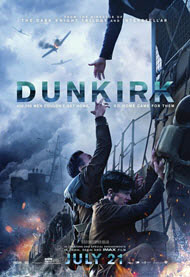

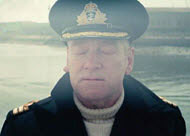
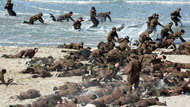
Self-sacrifice
Bravery / courage / heroism
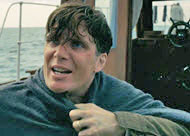
What is the Biblical perspective on war? Answer
war in the Bible
Did God make the world the way it is now? What kind of world would you create? Answer
the role of God in world events—He is SOVEREIGN over all nations.
Sin and the fall of man
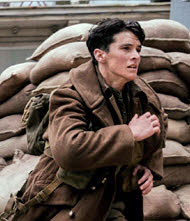
Why does God allow innocent people to suffer? Answer
What about the issue of suffering? Doesn’t this prove that there is no God and that we are on our own? Answer
Does God feel our pain? Answer
ORIGIN OF BAD—How did bad things of our world come to be? Answer
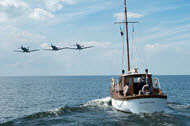
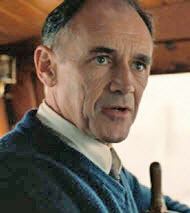
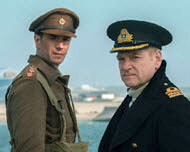
| Featuring |
|---|
|
Kenneth Branagh … Commander Bolton Tom Hardy … Farrier Mark Rylance … Mr. Dawson James D'Arcy … Colonel Winnant Cillian Murphy … Shivering Soldier Harry Styles … Alex Fionn Whitehead … Tommy See all » |
| Director |
| Christopher Nolan — “Inception” (2010), “The Dark Knight” (2008), “The Prestige” (2006) |
| Producer |
|
Christopher Nolan Emma Thomas See all » |
| Distributor |
An event that shaped our world—when 400,000 men couldn’t get home, home came for them
Director Christopher again brings us high-quality and unique storytelling. “Dunkirk” qualifies as a true cinematic masterpiece, quite unlike most of today’s blockbusters. Most directors rely on computer graphic wizardry and green-screen digital photography to achieve big (but not usually credible) action, computer generated people doing impossible (or incredibly dangerous things), massive crowds, perfect shot framing and camera angles, and awesome landscapes. Computer-generated imagery and studio green-screen work has undeniably advanced enormously, but it still leaves something to be desired; a true feeling of actual reality is rarely achieved. Most of us can tell when things are fake, and this knowledge distances audiences from making a true emotional connection with the story.
“Dunkirk” is a very visual, action-oriented film. As much as possible, Nolan gives us with the real deal! It is shot on real film (70mm), using real people, real crowds of thousands, actual historic locations, a real working destroyer and others ships, and authentic planes. A number of the boats onscreen actually participated in the historic evacuation.
When special effects are required for reenactments (bombs, artillery, gun shots, etc.), he uses practical effects, not CGI. To me, the difference is quite obvious. He pulls out all the usual stops. Real planes successfully ditch on a real ocean. He even crashes a real Messerschmitt (costing millions), simply because discerning audiences will notice the difference between real and fake.
The story of the enormous evacuation of Dunkirk deserves such realism. It was a very real and extremely pivotal historical event. The true size, scope and depth can never be successfully produced as a theatrical drama. What audiences are presented with in “Dunkirk” is, of course, not actual reality, that’s impossible. What Nolan gives us is a very skillful impressionistic presentation enhanced by an unusually great feeling of reality.
Many interesting details are not included. There is some fiction (dramatic license) involved. The characters are fictional or composites, based on history. In my opinion, the true story is far more amazing than fiction. “Dunkirk” is certainly not a perfect telling of what happened; it is more of a history experience than a history lesson. However, most viewers will find this film quite favorably unusual, emotional (but realistically restrained), and awesome.
Dialog is kept to a bare minimum—much less than in most dramas. Instead of TELLING the audience the story, Nolan SHOWS it—fast paced, full of small details and nuances for you to discover. That makes great cinema.
However, a 106 minute film can never give us the richness and depth that books provide, so if you know very little about these events, I highly recommend you read one or more historical accounts to gain a much truer understanding. Read about the people who were actually there.
The cinematography is a marvel—so impressive and realistic. As a photographer (and sometimes cinematographer) myself, I am awed by what the production team accomplished without resorting to computer imagery and digital enhancement.
The acting is very well done. No one seems like they are playing a part; I accepted all as authentic people of the time. This film is certainly not designed as a vehicle for stardom; the actors fully serve the story, not the other way around.
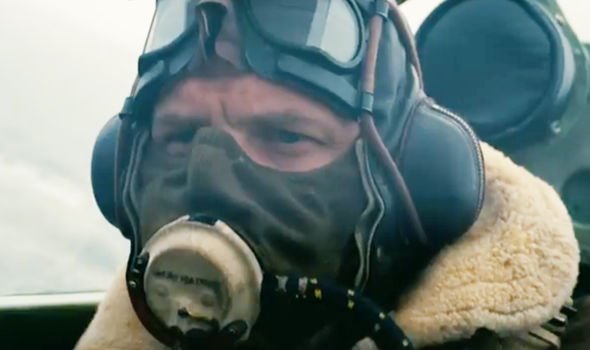

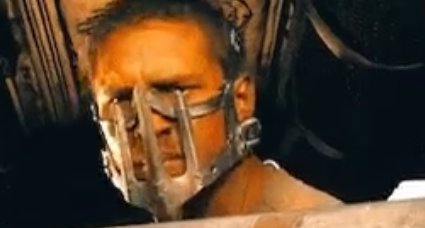

The biggest current star in this film is Tom Hardy, and we never see his face (just eyes behind goggles and a flight mask)—until a brief reveal of his face at film’s end. He does an amazing job of expressing thoughts and emotions with just his eyes and head movements. Viewers will find his character quite memorable.
The manner of courage, and sometimes cowardice/self-preservation, displayed in “Dunkirk,” seems quite realistic, in my opinion, and never overplayed. Some great goodness and kindness is exhibited.
I should mention that, if you are an American, you may have occasional difficulty understanding words and dialog. The actors seem authentically British (and most are), so expect a variety of UK pronunciations and terminology (e.g., a “mole” is a jetty). Don’t worry if you don’t understand every word; it is not necessary to the movie’s enjoyment.
The director continually moves the audience’s gaze between what is happening on the beach, in the air and on the sea. The movie is an intense experience, and sometimes loud (planes, bombs, guns, etc.). Occasionally, it becomes a little confusing, without the usual explanatory dialog or narration, but I think this method serves “Dunkirk” well. I would rather have the sensory and emotional feeling that accompanies such a realistic impression of events, than receive a totally linear and clichéd presentation. The film’s editing also makes a few time shifts (to prior events), without explanation. This could be confusing for some, but I did not experience any serious bewilderment—only a brief initial disorientation. Pay close attention to get the richest viewing experience.
VIOLENCE—None of the violence is over-the-top or gratuitous. It is kept PG-13, without gore and with little bloodiness. My wife dislikes war movies, due to their typical violence—which some directors seem to relish. She agreed to attend my viewing and really liked this film. It gives a helpful, sufficiently realistic emotional impression of the difficulties, frustrations, and terror of war, without being gross about it.
It is important to appreciate the men and women of history who earned our freedoms and triumphed over evil adversaries at such great personal cost. How many young people truly understand that freedom is precious, and freedom is not free?
SEX/NUDITY—There is no sexuality or nudity. An anxious soldier squats to defecate (he thinks in private), but this very brief scene shows no details and quickly develops into a different direction.
LANGUAGE—The number of swearwords is surprisingly low for a war film, especially these days when f-words can well exceed 100. As a follower of Christ aiming at a life of purity and goodness, I wish NONE of the swearwords were present, but I suppose the profanity and vulgarity does lend some authenticity. At least it was kept relatively minimal for a big budget reality-based war film—and, although I am quite sensitive to their use, they didn’t they stand out badly in context. They are just the expected, but not never condoned, exclamations of anxiety-filled men in war time. All words are listed at the end of this review.
The use of one particular vulgar word would normally cause me to downgrade the morality rating to Offensive, but considering the overall positives of this film and the unique, realistic and rather inspiring experience it provides, I believe that rating would give readers the wrong impression about this motion picture. For its genre, “Dunkirk” is better than average.
The tension and intrigue continues to increase incrementally throughout the film, definitely aided by composer Hans Zimmer’s score. This film is succinct and never bored me; I was intensely focused and involved from beginning to end. Viewing on a big screen is definitely best—and even better on IMAX. “Dunkirk” is very likely to receive Academy Award nominations.
Director Christopher Nolan says, “I want the audience to feel my movies, not understand them.” In addition, he appears to be non-religious (a Secularist), although he seems to understand and use religious imagery—possibly due to his brother and co-worker, Jonathan Nolan (a successful director and screenwriter), who graduated from the Jesuit Loyola Academy (a college preparatory high school). Don’t expect to have an inspirational or spiritual experience watching Nolan’s film; that certainly wasn’t his goal.
That is my most serious complaint about “Dunkirk.” It succeeds as a spectacle that visually displays “the craziness, brutality and arbitrariness of war.” But it fails to be as inspirational as this important historic event warrants. Worse, it totally ignores the existence of God, Believers and prayer. “Dunkirk” is not specifically anti-God; it just entirely ignores Him—and praying believers. It never even hints at the millions of intense pleas that went to God during (and preceding) these historic events. Praise God, many earnest, repentant prayers were answered in His mercy and grace.
Behind Dunkirk’s evacuation—repentance and divine mercy
With the War going so disastrously in Europe and virtually the entire British Army and allies facing annihilation or slavery as the Nazi noose tightened to a stranglehold around Dunkirk (Dunkerque, France), King George 6th of Great Britain wisely called for a fervent National Day of Prayer to be held on May 26, 1940.
“In a national broadcast, he instructed the people of the UK to turn back to God in a spirit of repentance and plead for Divine help. Millions of people across the British Isles flocked into churches praying for deliverance” (John Willans, UK).
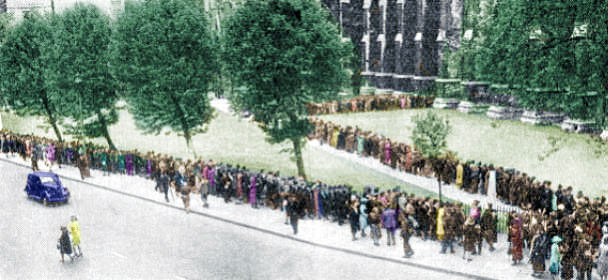
The newspaper Daily Sketch proclaimed, “Nothing like it has ever happened before.”
Soldiers on the Dunkirk beach prayed fervently, as well.
“Please God, let us go, get us out of this mess back to England.” —Harry Garrett, British 52nd Regiment
The amazing historical events of the Dunkirk mass evacuation directly followed the people’s display of humility, repentance and plea for God’s help—that very day the successful evacuation began. The people of the time widely recognized the results as “the miracle of Dunkirk.”
Even The New York Times of 1940 stated,
“So long as the English tongue survives, the word Dunkerque will be spoken with reverence.”
And for good reason, as truly stunning things happened…
UNITED BRAVE AND OPTIMISTIC ACTION IN THE FACE OF SOUL-CRUSHING DISCOURAGEMENT—Successfully defeating European nations at every turn, the Nazis were on the brink of surely crushing the defenders of Britain. The people of the UK were hearing that democracy was finished in Britain. Rather than collapsing in fear and surrender, as many expected, the people quickly rallied.
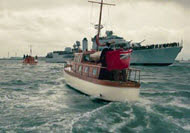
THE BOATS—The evacuation began on May 26, 1940 and there were not enough available ships, so “hundreds of boats of every description came to the rescue of desperate, trapped soldiers” (including 700 privately-owned boats, although not necessarily operated by their owners).
THE ENGLISH CHANNEL—The normally treacherous English Channel was reportedly “as smooth as a millpond” (probably a slight exaggeration, but a reasonable metaphor compared to the Channel’s usual treacherous nature). It was obviously quite calm if so many thousands stood shoulder to shoulder on decks of small boats for the long crossing without being tossed overboard. The movie definitely depicts the sea as more rough and dramatic. (But, admittedly, we can’t expect a filmmaker to capture such rare Channel conditions.)
UNEXPECTED SUCCESS IN AIR BATTLE—Despite the Nazi Luftwaffe’s clear numerical superiority and battle experience, they inexplicably lost the furious air battle that ensued. They failed in their concerted effort to massacre hundreds of thousand of soldiers on the beach with strafing and bombs, and utterly failed to stop the massive evacuation.
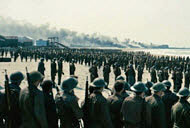
MYSTERIOUSLY HUGE ERROR—Hitler seemingly obliged the evacuation by sanctioning a Halt Order, making the single biggest mistake of the War. His invincible, encircling Wehrmacht, stopped when it should have continued to quickly advance on the beach with tanks, artillery and all troops. The order was not rescinded until it was too late. Thus, the overconfident Nazis missed their greatest opportunity to slaughter and enslave the Allied troops, and ultimately lost the War. (The Bible records many times when God influenced the minds of heathen kings and generals.)
ASTONISHINGLY GREAT SUCCESS—At best, the wildest hope for the British was the rescue of 50-thousand soldiers. Instead, about 340-thousand Allied troops (198-thousand British and 140-thousand French and Belgian) were evacuated from the beaches—most from a single narrow jetty, the rest were snatched from the sea.
“Dunkirk” does not fully accentuate this marvelous reality, instead it focuses more on dramatic deaths and near-deaths, and less on the amazingly smooth rescue of the great majority, despite such potential for disaster at every turn.
ALLOWED FREE FRENCH RESISTANCE—The 111,000 rescued French soldiers went on to form the crucial Free French Resistance (Forces françaises libres) against the Nazi occupation of France.
- BRITISH RECOVERY—Despite the colossal military disaster of having to leave behind so much vital military equipment and ammmunition on the beach, Britain recovered very well.
By all accounts, the Nazis should have quickly defeated the Allies and enslaved Britain. Instead, the nation and the world were ulitmately rescued from the Nazi’s terrible blood lust and tyranny which sought to exterminate God’s people—both Jews and true followers of Christ.
A sobering epilogue to these events
Today, most of the people of Great Britain are no longer following their Creator or acknowledging His sovereignty or existence; the vast majority are living a life of Secularism, with its foundational belief in Evolutionism, and are boldly unrepentant sinners. The nation that once was the world’s great source of wonderful Christian missionaries is now mostly in spiritual darkness. It is no surprise that today the UK is faced with numerous extremely serious problems. Will they be humbled and repent, or will they proceed in darkness to their doom? Read the words of John Willans, a concerned UK Christian…
“This 1940 photograph starkly shows how the UK has changed since the end of the 2nd World War. It almost seems to be a different country. Sadly, since the end of the War, Britain has largely rejected the moral Laws of God which are clearly stated in Scripture. In Psalm 107:34 it warns,
‘a fruitful nation will become impoverished because of the wickedness of its people’
Proverbs 14:34 adds,
‘Righteousness will exalt a nation, but wickedness will destroy a people’.
Without God’s blessing of protection upon our Nation, we are no longer shielded from evil and disaster. In Deuteronomy 31:17, when referring to an immoral and corrupt nation, God said,
‘I will forsake them…and many evils and troubles will befall them, so that they will say at that time…
“Have not these disasters come upon us because God is no longer protecting us?”’
This is precisely the position our Nation finds itself in today.
May we, like the Wartime generation before us, turn to God in a true spirit of repentance and plead for Divine help for our country. In 2nd Chronicles 7:14, God promises,
“If people humble themselves and pray and seek My face, and turn from their wicked ways, then I will hear from heaven, and forgive their sin and heal their land.”
If our country, once again sought God’s help as it did during Wartime, now, just as then, miracles of blessing and protection would begin to happen.” —John Willans, UK Anglican Christian
- Violence: Very Heavy—all war violence, but restrained; no gore, unusually light on bloodiness, and the violence does not seem gratuitous
- Swearwords: Moderately Heavy— Chr*st (2), For G*d’s sake, d*mn, h*ll (2), f-word (2), bloody (several)
- Sex/Nudity: None
- Sound Design: There is a potential problem for a limited number of viewers. Read editor’s note below.
See list of Relevant Issues—questions-and-answers.


Moral rating: Good / Moviemaking quality: 5
My only wish is that they had included the fact that there had been a call to prayer, the British people responded, and how their prayers were answered. How close the Nazis were, how close this was to changing the course of WWII. Why this event has long been referred to as The Miracle of Dunkirk.
An encouraging reminder that God answers prayers, can intervene with miracles, and save their land when a nation’s people humble themselves and turns back to Him.
Moral rating: Better than Average / Moviemaking quality: 5
In NINE LIVES, Al Deere describes landing on the beach during the battle with his wheels up—standard practice for off-field landings—and he was back in England the same day. The pilot in Dunkirk (twice the age of the typical pilot) flew over long lines of soldiers, but landed alone and was captured.
The Spitfires and Messerschmidts were maneuvering so slowly in their dogfights that even my wife commented on it. Small arms fire passing easily through the steel hull of a ship is questionable, but when they pass through below the water line it’s ridiculous.
But if you know little of the history, you will enjoy the excellent acting, sets and cinematography, and the profanity was constrained—considering the environment. Several excellent examples of personal sacrifice are to be found.
Moral rating: Better than Average / Moviemaking quality: 3
The acting is top-notch, from veteran Sir Kenneth Branagh to newcomer Harry Styles. The writing is also excellent, as is the cinematography, sound effects, etc.
Biblically-speaking, there is plenty of violence, as is to be expected in a war movie, but little of it is graphic; there are a few profanities sprinkled throughout, including at least one misuse of our Lord’s Name and two f-words, one man is seen defecating off-camera early in the picture (sans nudity; which the director does not do in his films, save “Memento” and “Insomnia”) and that is the extent of the objectionable content.
See “Dunkirk” on the big screen, if you can, preferably in IMAX. You will get the full experience this way.
Moral rating: Better than Average / Moviemaking quality: 5
Moral rating: Excellent! / Moviemaking quality: 5
Moral rating: Better than Average / Moviemaking quality: 5
However, a large part of the film’s story follows civilian volunteers from England putting themselves at risk to rescue trapped soldiers from the waters off Dunkirk. In doing so, are they not embodying “fishers of men,” the metaphor describing the most basic Christian behavior?
When viewing Christopher Nolan’s films, we should keep in mind that he is a graduate of Loyola Academy in Wilmette, Illinois, a Jesuit institution with a mission of educating youth to behave as Christians in the modern world.
Moral rating: Excellent! / Moviemaking quality: 5
Moral rating: no opinion / Moviemaking quality: 5
Moral rating: Better than Average / Moviemaking quality: 3
I suppose the director wanted to create a certain mood, , and he certainly did. I had to leave the theatre for awhile, but returned with my ears plugged in order not to ruin our date night. If there is noise in hell, I think it will sound like the noise in this movie. Still trying to shake off the feeling. Otherwise, the war action was not particularly disturbing or gratuitous for me.
Moral rating: Better than Average / Moviemaking quality: 1
For a demonstration of what Zimmer did, watch this 3 minute Vox video (above), “The Sound Illusion that Makes DUNKIRK So Intense.” By the way, if any visitor has the same “auditory torture” experience with this video while listening on good speakers or earphones, then, in the theater, you will surely have the same problem, only worse.
Honestly, I think sometimes we are sentimental about historical war movies. However, I just don't think the film was that good, even though I can appreciate the history.
Moral rating: Good / Moviemaking quality: 3½
PLEASE share your observations and insights to be posted here.
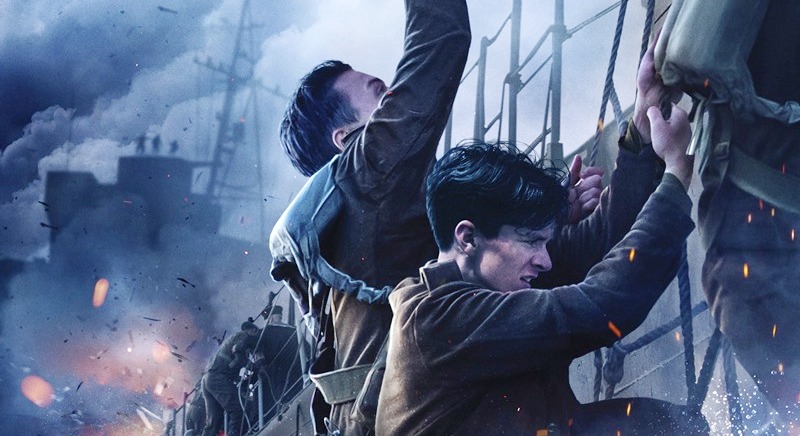

My Ratings: Moral rating: Good / Moviemaking quality: 5